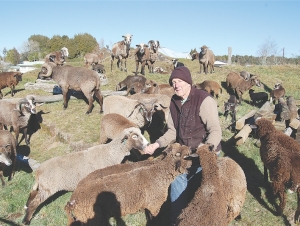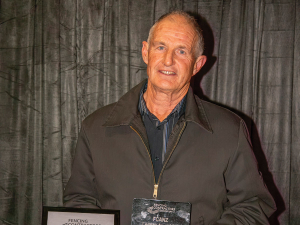Tuart, 79, lives on a rented property at Mamaku, near Rotorua; he gets $400 a week pension and spends about $100 of this on supplementary feed for the 100 sheep.
The severe winter has hampered grass growth, he says. “The winter has been so severe the grass has not been growing. Soon there will be no more grass to grow and I don’t know what to do.”
Tuart’s sheep flock includes Hebrideans, Mohakas, Arans and Goths.
He started buying rare British sheep after returning to New Zealand from a work stint in the US. Twenty years ago he had 1000 sheep on his Te Puke farm; he sold the farm and spent most of the money on looking after the sheep.
Rising land prices prevent him from buying another farm.
He believes Hebridean and Mohaka sheep may be the future for the New Zealand sheep industry.
“These sheep have a muscling gene and produce more meat per carcase weight than any other sheep,” he told Rural News.
“They may not produce much wool but they are super meat producers and we should be farming them.”
The sheep are kept on several lifestyle blocks at Mamaku but Tuart says he’s fast running out of pasture.
“It will be good if a farmer can help me keep all these sheep together. They will be valuable to the industry one day.”
Tuart can be contacted on 027 975 0228.









